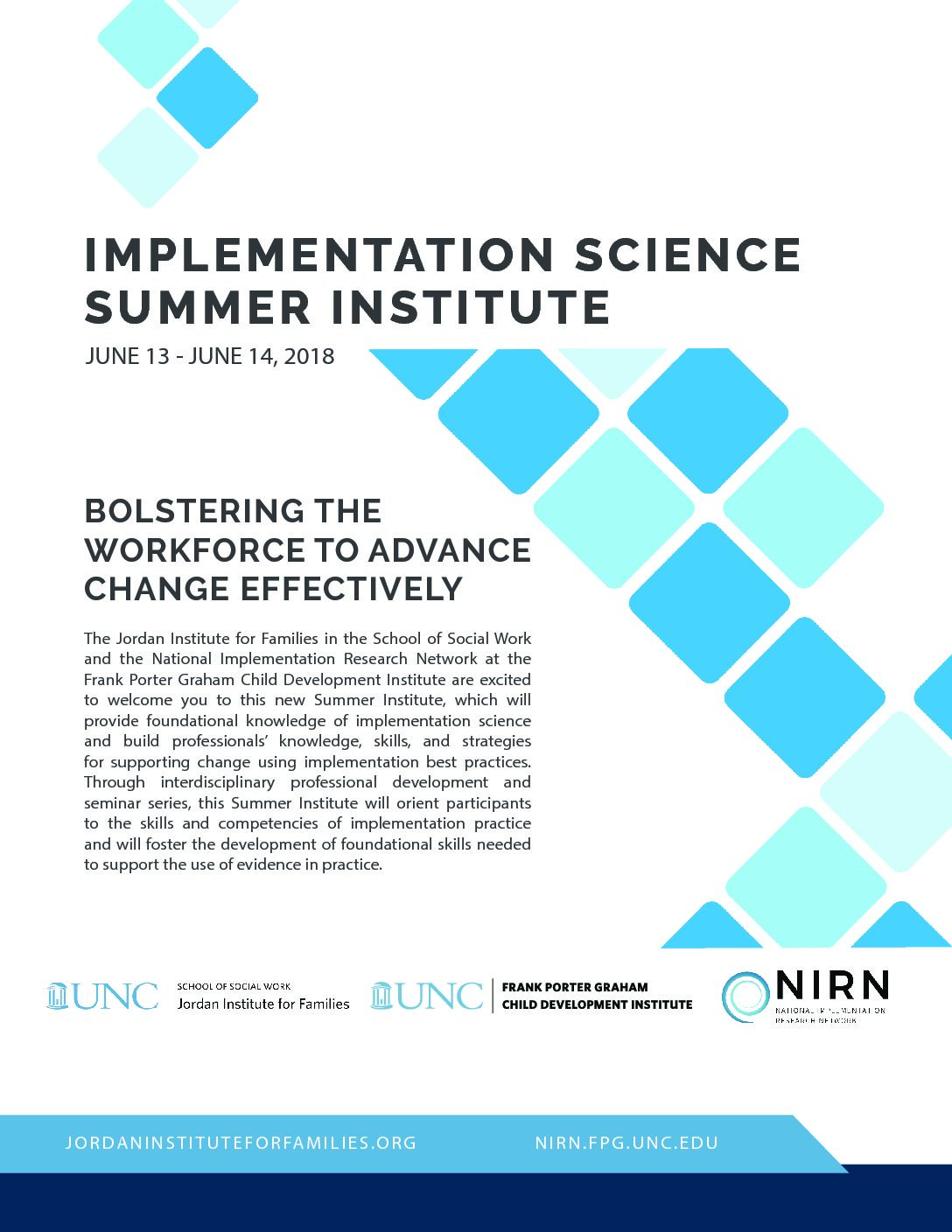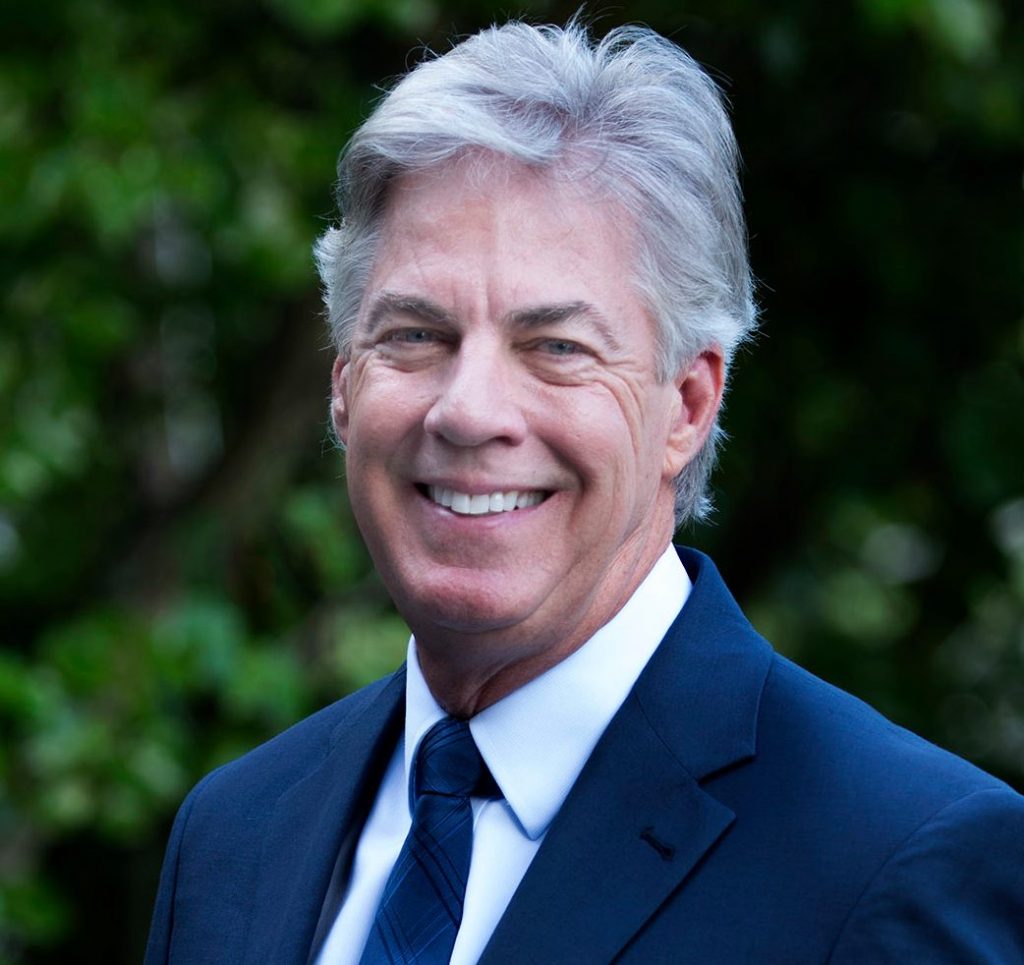
- This event has passed.
Summer Institute on Implementation Science
Event Navigation
This event is co-hosted by the Jordan Institute for Families | UNC School of Social Work, the Frank Porter Graham Child Development Institute, and National Implementation Research Network (NIRN). Generous support for this event has been provided by The Annie E. Casey Foundation.
REGISTRATION IS NOW FULL.
*Lodging and parking details are provided further below.
Background/Need
Social workers and public health professionals interested in facilitating and understanding change processes note that implementation strategies have unparalleled importance in improving population outcomes, as they constitute the ‘how to’ component (Proctor, Powell, & McMillen, 2013) of changing practices and optimizing the use of evidence to benefit people and communities (Kainz & Metz, 2017). As the field of implementation science has grown significantly over the last decade with the proliferation of frameworks, models, and theories, there is mounting interest in building the capacity of professionals in social services and public health to make use of this emerging science to support sustainable practice and systems improvements.
This interest has led to an intensifying conversation regarding the need to train researchers and practitioners in implementation science (Padek et al., 2015). Specifically, the shortage of individuals trained in the practice of implementation has been cited as a reason for our failure to optimize the use of evidence to improve population outcomes (Straus et al., 2011.) In response to this gap, more is being studied and written about the specific competencies needed to facilitate change in complex systems (Bornbaum, Kornas, Peirson, & Rosella, 2015; Berta, et al., 2015). Moreover, the Grand Challenges Initiative developed by the American Academy of Social Work and Social Welfare (Sherradon et al., 2015) explicates a set of pressing social issues, around which social work researchers and practitioners can unite. The highlighted challenges are complex, and will require the cultivation of implementation competencies among the researchers and practitioners who are positioned to address them.
Purpose
This new two-day Summer Institute seeks to provide foundational knowledge of implementation science and to build professional and graduate students’ knowledge, skills, and strategies for supporting change using implementation best practices. Through interdisciplinary professional development and seminar series, this Summer Institute will orient participants to the skills and competencies of implementation practice and will foster the development of foundational skills needed to support the use of evidence in practice.
Objectives
The Summer Institute aims to seed the growth of implementation science practitioners who will be able to:
- Identify and characterize problems that can be addressed through more effective implementation.
- Support authentic engagement of communities and stakeholders in all stages of the implementation process resulting in programs and practices that are contextualized and tailored to settings to improve outcomes.
- Integrate use of quantitative and qualitative feedback at each stage of implementation to optimize performance of programs and practices in local contexts and at scale.
- Support the sustainability of interventions and approaches by developing a shared vision, building capacity, and supporting collaboration.
A unififying element of the institute will be the promotion and cultivation of Skills and Competencies for Implementation Practitioners, namely: Co-Creation, in the form of co-learning, brokering, addressing power differentials, co-design, and tailored support; Continuous Improvement, in the form of assessing need and context, applying and integrating implementation science approaches, and conducting improvement cycles; and Sustaining Change, in the form of growing and sustaining relationships, building capacity, cultivating leadership, and facilitation.
*For additional media related to implementation, tune in to the National Implementation Research Network podcast!
Summer Institute Planning Committee
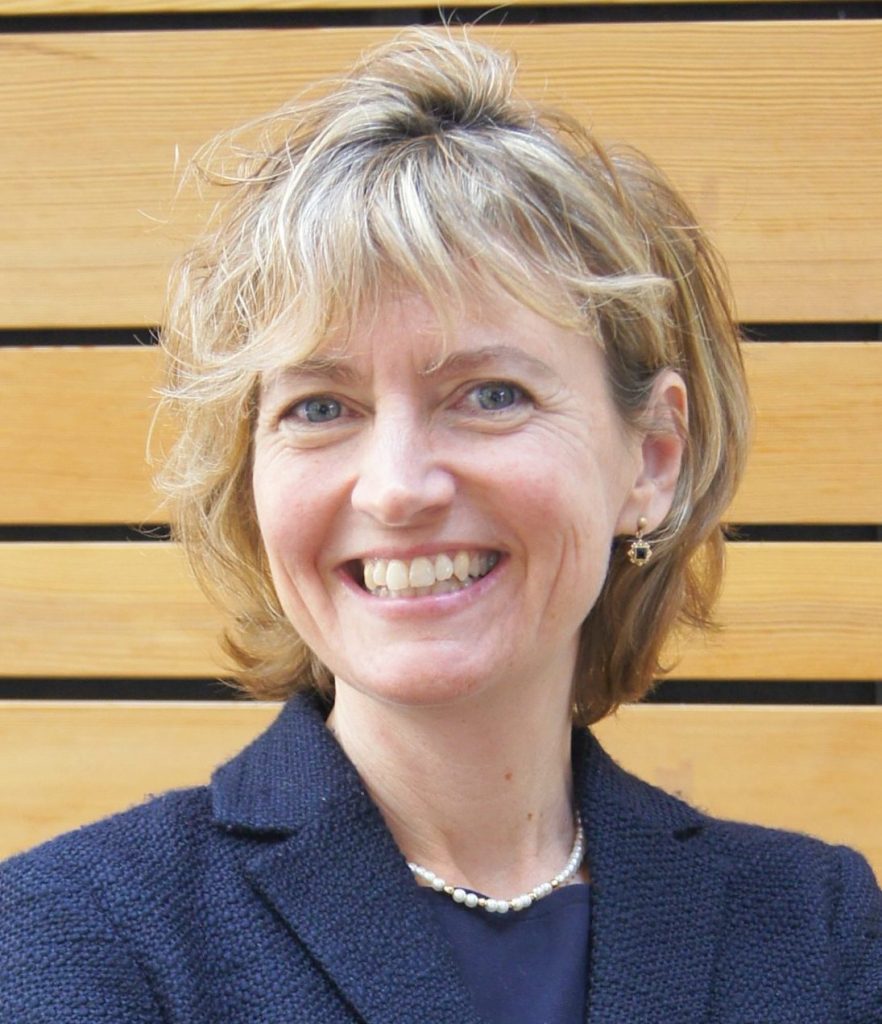 Co-Chair: Sarah Verbiest – Director of the Jordan Institute for Families, John A. Tate Early Career Scholars for Children in Need Professor at the School of Social Work, University of North Carolina at Chapel Hill; Executive Director of the Center for Maternal and Infant Health
Co-Chair: Sarah Verbiest – Director of the Jordan Institute for Families, John A. Tate Early Career Scholars for Children in Need Professor at the School of Social Work, University of North Carolina at Chapel Hill; Executive Director of the Center for Maternal and Infant Health
Co-Chair: Allison Metz – Director of the National Implementation Research 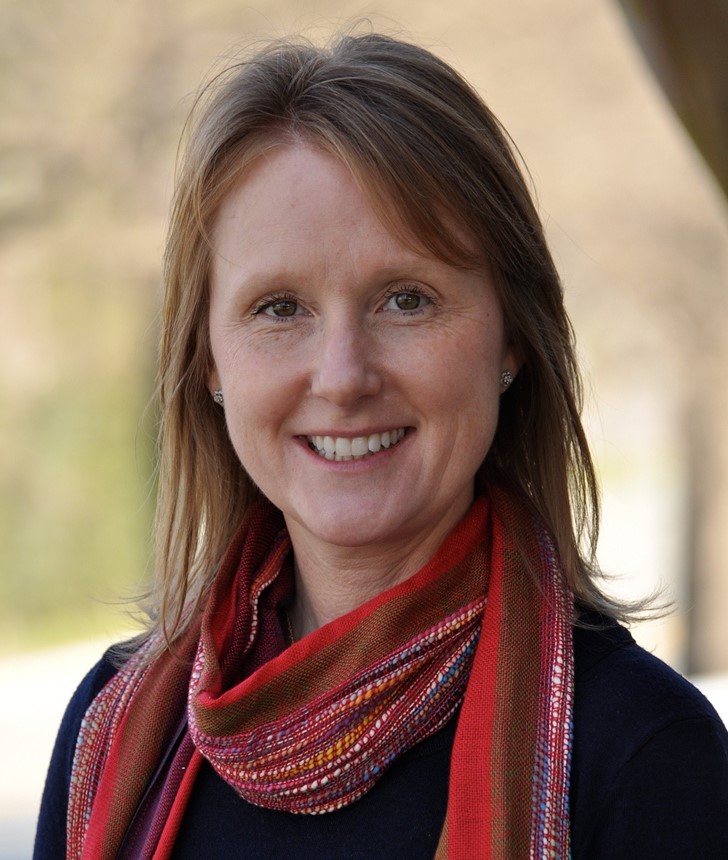 Network (NIRN), Senior Research Scientist at the Frank Porter Graham Child Development Institute; Research Professor at the School of Social Work, University of North Carolina-Chapel Hill
Network (NIRN), Senior Research Scientist at the Frank Porter Graham Child Development Institute; Research Professor at the School of Social Work, University of North Carolina-Chapel Hill
Members: Amanda Farley – Project Manager, National Implementation Research Network (NIRN), Frank Porter Graham Child Development Institute; Todd Jensen – Research Associate, Jordan Institute for Families; Research Assistant Professor at the School of Social Work, University of North Carolina at Chapel Hill
Why the UNC-CH School of Social Work’s Jordan Institute for Families and NIRN came together:
The UNC-CH School of Social Work’s Jordan Institute for Families and the National Implementation Research Network (NIRN) are partnering to offer the inaugural Summer 2018 Institute on Implementation Science. The new Summer Institute provides an exciting opportunity to join the Jordan Institute’s mission to extend social work training beyond the academy walls into communities with NIRN’s goal to support the development and use of evidence to improve outcomes for children and families. Social workers and public health professionals attending the Summer Institute will develop foundational skills to use emerging science to support sustainable practice and system improvements in their communities.
We are excited to welcome our outstanding Plenary Speakers:
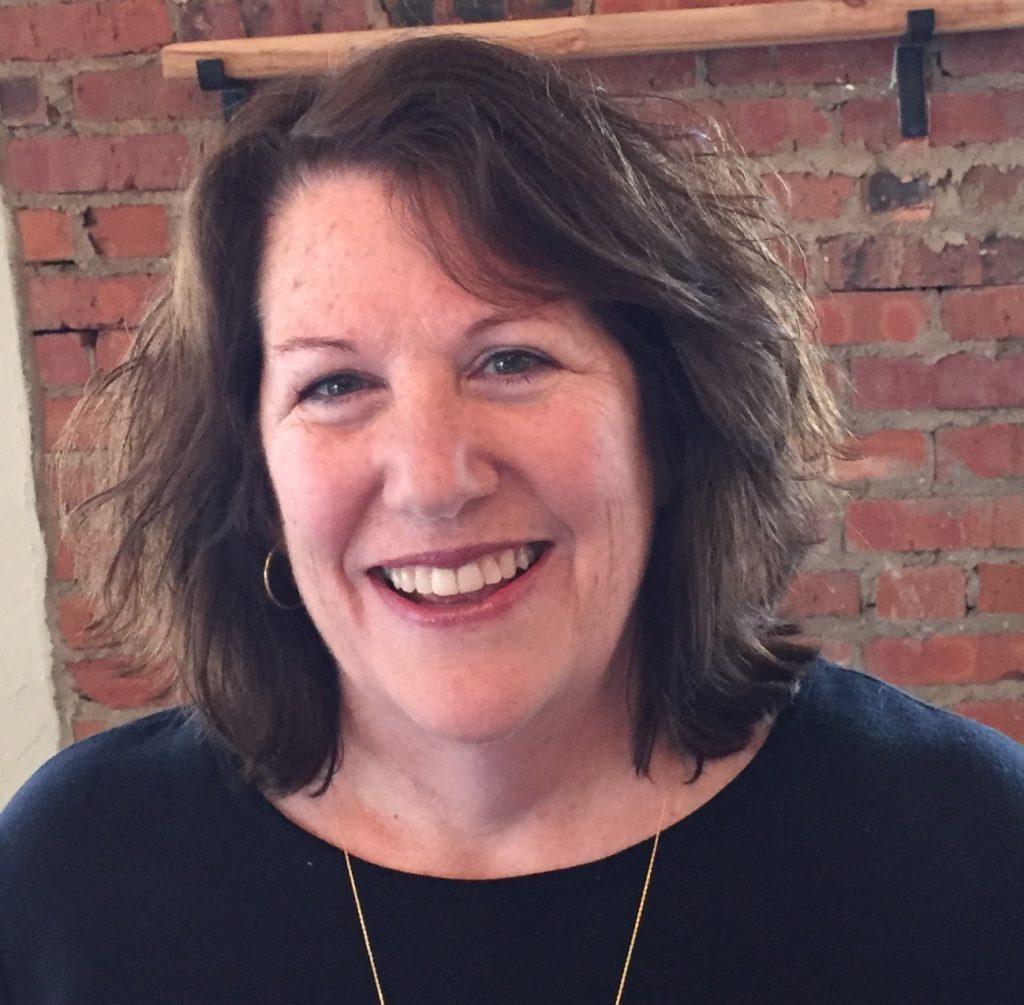 Allison Blake, PhD, LSW has more than 30 years of experience serving children and families. She was recently appointed a Senior Fellow with the Annie E. Casey Foundation where her primary focus is assisting public and private child welfare agencies implement the Family First Prevention Services Act. Previously, she served as commissioner of the New Jersey Department of Children and Families for more than seven and a half years. Under her leadership, the department successfully implemented an integrated and strategic approach to delivering child welfare services. This approach promoted evidence informed, community- based services to support women, children, and families. Dr. Blake also led New Jersey’s efforts to significantly expand community partnerships to prevent child abuse and strengthen families. She previously served as Director of the Institute for Families at Rutgers University School of Social Work and Vice President of Accreditation Operations at the Council on Accreditation. Dr. Blake earned a Master’s degree in Social Work from Rutgers University and a Doctorate from Fordham University. Through her extensive work and vast experience, Dr. Blake has acquired comprehensive knowledge and insight on developing programs and improving child welfare systems in order to improve the lives of children and families. She is a member of the National Board of Directors of the Child Welfare League of America and a member of the National Advisory Committee on Children and Disasters.
Allison Blake, PhD, LSW has more than 30 years of experience serving children and families. She was recently appointed a Senior Fellow with the Annie E. Casey Foundation where her primary focus is assisting public and private child welfare agencies implement the Family First Prevention Services Act. Previously, she served as commissioner of the New Jersey Department of Children and Families for more than seven and a half years. Under her leadership, the department successfully implemented an integrated and strategic approach to delivering child welfare services. This approach promoted evidence informed, community- based services to support women, children, and families. Dr. Blake also led New Jersey’s efforts to significantly expand community partnerships to prevent child abuse and strengthen families. She previously served as Director of the Institute for Families at Rutgers University School of Social Work and Vice President of Accreditation Operations at the Council on Accreditation. Dr. Blake earned a Master’s degree in Social Work from Rutgers University and a Doctorate from Fordham University. Through her extensive work and vast experience, Dr. Blake has acquired comprehensive knowledge and insight on developing programs and improving child welfare systems in order to improve the lives of children and families. She is a member of the National Board of Directors of the Child Welfare League of America and a member of the National Advisory Committee on Children and Disasters.
 Paul Elam, PhD, president of PPA, is a skilled team builder, project manager, and researcher with policy expertise in youth violence and prevention, crime and justice, and child maltreatment. He conducts his work using a culturally responsive and racial equity lens and brings a commitment to diversity, inclusion, and equity. Dr. Elam has a wealth of knowledge and experience measuring racial and ethnic disproportionality and believes that sound public policy analysis should include an examination of whether all people are being treated fairly and equitably. For the last decade, Dr. Elam has worked with the Governor’s Committee on Juvenile Justice, the Michigan Department of Health and Human Services, and local jurisdictions to ensure that justice-involved youth are treated fairly and equitably. He is responsible for data collection, reporting, technical assistance and strategic support to develop and implement solutions that reduce disproportionate minority contact in Michigan’s child welfare and juvenile justice systems. Dr. Elam is assisting the Annie E. Casey Foundation as an advisor and mentor with the Expanding the Bench Initiative. This initiative aims to improve evaluation science and social innovation by increasing diversity in the field of research and evaluation. Dr. Elam’s work will focus on evaluators from historically underrepresented groups with evaluation expertise in the areas of child welfare and juvenile justice. Dr. Elam is also partnering with the Michigan Department of Education (MDE) to document the experiences and perspectives of students of color in Michigan’s public school system. The goal is to help Michigan schools narrow the achievement gap between African-American students and others by listening to these students about their experiences. Findings will be used to help develop culturally responsive pedagogy and teaching approaches that increase the academic success and retention of students of color in underperforming schools. Dr. Elam has been a lead consultant on numerous statewide projects, including the Michigan Coalition for Race Equity in Child Welfare and Juvenile Justice and the Michigan Child Welfare Improvement Task Force. He also played a key role in the development and implementation of the Michigan Prisoner ReEntry Initiative and continues to work on reentry training across the U.S.
Paul Elam, PhD, president of PPA, is a skilled team builder, project manager, and researcher with policy expertise in youth violence and prevention, crime and justice, and child maltreatment. He conducts his work using a culturally responsive and racial equity lens and brings a commitment to diversity, inclusion, and equity. Dr. Elam has a wealth of knowledge and experience measuring racial and ethnic disproportionality and believes that sound public policy analysis should include an examination of whether all people are being treated fairly and equitably. For the last decade, Dr. Elam has worked with the Governor’s Committee on Juvenile Justice, the Michigan Department of Health and Human Services, and local jurisdictions to ensure that justice-involved youth are treated fairly and equitably. He is responsible for data collection, reporting, technical assistance and strategic support to develop and implement solutions that reduce disproportionate minority contact in Michigan’s child welfare and juvenile justice systems. Dr. Elam is assisting the Annie E. Casey Foundation as an advisor and mentor with the Expanding the Bench Initiative. This initiative aims to improve evaluation science and social innovation by increasing diversity in the field of research and evaluation. Dr. Elam’s work will focus on evaluators from historically underrepresented groups with evaluation expertise in the areas of child welfare and juvenile justice. Dr. Elam is also partnering with the Michigan Department of Education (MDE) to document the experiences and perspectives of students of color in Michigan’s public school system. The goal is to help Michigan schools narrow the achievement gap between African-American students and others by listening to these students about their experiences. Findings will be used to help develop culturally responsive pedagogy and teaching approaches that increase the academic success and retention of students of color in underperforming schools. Dr. Elam has been a lead consultant on numerous statewide projects, including the Michigan Coalition for Race Equity in Child Welfare and Juvenile Justice and the Michigan Child Welfare Improvement Task Force. He also played a key role in the development and implementation of the Michigan Prisoner ReEntry Initiative and continues to work on reentry training across the U.S.
A special thanks to UNC-CH Administration, UNC-CH School of Social Work, and FPG Child Development Institute Leadership for their suppport:
Bob Blouin, PharmD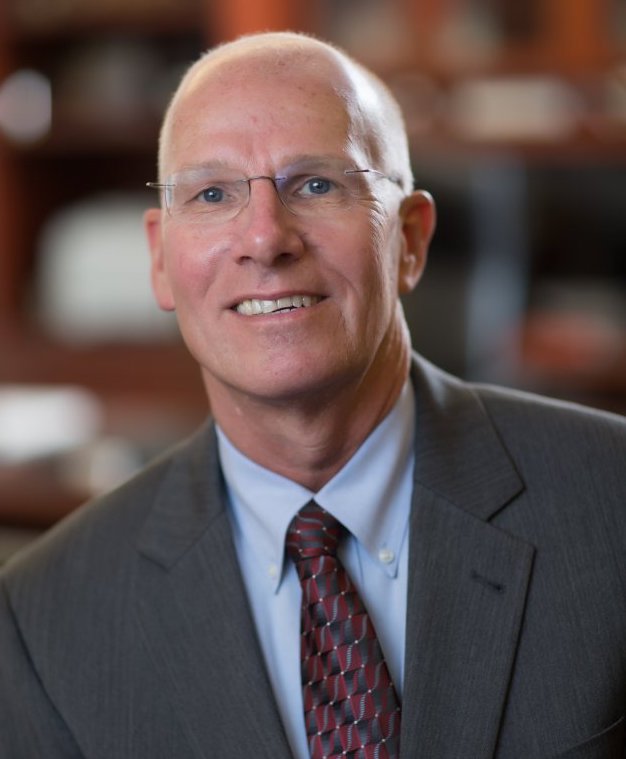 is the Executive Vice Chancellor and Provost (“provost”) of the University of North Carolina at Chapel Hill. The provost serves as the Chief Operating Officer of the university and works in unison with the chancellor to lead critically important pan-university initiatives. The provost also has oversight responsibilities for budget and planning.
is the Executive Vice Chancellor and Provost (“provost”) of the University of North Carolina at Chapel Hill. The provost serves as the Chief Operating Officer of the university and works in unison with the chancellor to lead critically important pan-university initiatives. The provost also has oversight responsibilities for budget and planning.
Alongside Chancellor Carol Folt, Blouin plays a central leadership role in implementing Carolina’s first-ever strategic framework, an initiative that will guide university growth over the next decade. He believes a key mission of the provost is to ensure Carolina attracts, develops and retains leading faculty members focused on preparing students for success in a rapidly changing global economy.
An acclaimed educator, award-winning researcher and internationally recognized innovator, Blouin was Dean of the UNC Eshelman School of Pharmacy from 2003 to 2017. When announcing Blouin as Carolina’s 15th Provost, Chancellor Folt cited his exceptional professionalism as dean and his change-leadership success that has helped accelerate the school’s unprecedented expansion and international recognition in its research, education and global engagement programs. He will continue to serve as the school’s Bryson Distinguished Professor.
Gary Bowen, PhD is Dean and Kenan Distinguished Professor in the School of Social Work at the University of North Carolina at Chapel Hill. Dr. Bowen currently co-directs the School Success Profile (SSP) project. The two student-level assessments that have emerged from this work — the School Success Profile and the Elementary School Success Profile — have been administered to nearly 100,000 students in nearly 2,000 schools and youth-serving agencies. The SSP or parts of the SSP have been translated into five languages: Spanish, Hebrew, Lithuanian, Romanian, and Portuguese. Dr. Bowen developed the School Success Profile Learning Organization (SSP-LO) instrument to assess schools’ organizational readiness for innovation. Dr. Bowen also has extensive experience working with all branches of the military services, and during the past 30 years, he has visited installations worldwide in the context of consulting with military policy makers, researchers, and practitioners across a range of mental health and social service issues. In 2017, Dr. Bowen was selected as an American Academy of Social Work and Social Welfare Fellow for his distinguished accomplishment as a scholar and practitioner dedicated to achieving excellence in his work to advance social good.
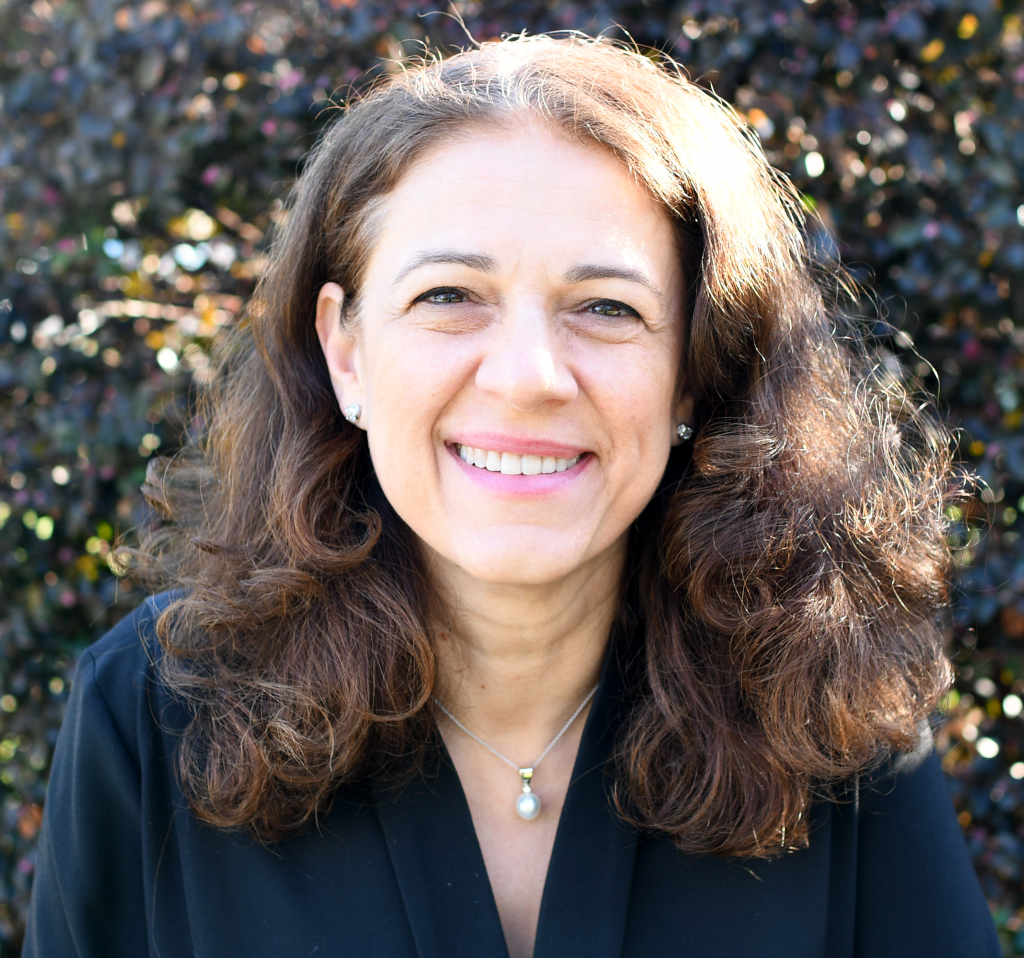 Aysenil Belger, PhD is Director of the Frank Porter Graham Child Development Institute, Professor and Director of Neuroimaging Research in Psychiatry, and adjunct Professor in the Department of Psychology at the University of North Carolina at Chapel Hill and at the Duke-UNC Brain Imaging and Analysis Center. Dr. Belger is a cognitive neuroscientist whose research focuses on translational and interdisciplinary studies of brain circuits underlying attention, emotion and decision making, and how these circuits break down in neuropsychiatric and neuro-development disorders such as schizophrenia and autism. Dr. Belger combines functional magnetic resonance imaging (fMRI), electrophysiological scalp recording (EEG), functional near infrared spectroscopy (fNIRS), experimental psychology and neuropsychological assessment techniques to understanding the development of the adolescent brain, and how nature/nurture interactions provide particular vulnerability to individuals who develop schizophrenia or autism. Her integrative research has most recently pioneered exploration of electrophysiological and functional abnormalities in young autistic children, as well as children, adolescents and adults at clinical and familial risk for psychosis. Dr. Belger is part of a large interdisciplinary team of investigators conducting multi-institutional studies exploring the impact of early childhood abuse and neglect on adult brain function, structure and substance abuse outcomes. Recent studies from Dr. Belger’s laboratory have demonstrated that parents of children with autism share phenotypic and neurobiological markers associated with aberrant social information processing. She eagerly mentors multiple undergraduate, graduate and medical students, as well postdoctoral trainees and junior faculty.
Aysenil Belger, PhD is Director of the Frank Porter Graham Child Development Institute, Professor and Director of Neuroimaging Research in Psychiatry, and adjunct Professor in the Department of Psychology at the University of North Carolina at Chapel Hill and at the Duke-UNC Brain Imaging and Analysis Center. Dr. Belger is a cognitive neuroscientist whose research focuses on translational and interdisciplinary studies of brain circuits underlying attention, emotion and decision making, and how these circuits break down in neuropsychiatric and neuro-development disorders such as schizophrenia and autism. Dr. Belger combines functional magnetic resonance imaging (fMRI), electrophysiological scalp recording (EEG), functional near infrared spectroscopy (fNIRS), experimental psychology and neuropsychological assessment techniques to understanding the development of the adolescent brain, and how nature/nurture interactions provide particular vulnerability to individuals who develop schizophrenia or autism. Her integrative research has most recently pioneered exploration of electrophysiological and functional abnormalities in young autistic children, as well as children, adolescents and adults at clinical and familial risk for psychosis. Dr. Belger is part of a large interdisciplinary team of investigators conducting multi-institutional studies exploring the impact of early childhood abuse and neglect on adult brain function, structure and substance abuse outcomes. Recent studies from Dr. Belger’s laboratory have demonstrated that parents of children with autism share phenotypic and neurobiological markers associated with aberrant social information processing. She eagerly mentors multiple undergraduate, graduate and medical students, as well postdoctoral trainees and junior faculty.
We are pleased to introduce our wonderful faculty Presenters/Facilitators (with more bios forthcoming):
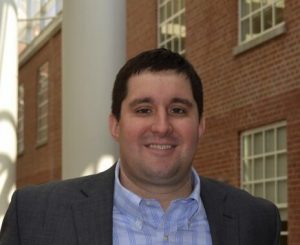 Byron J. Powell, PhD is an Assistant Professor in the Department of Health Policy and Management at the Gillings School of Global Public Health and a Fellow at the Cecil G. Sheps Center for Health Services Research and the Frank Porter Graham Child Development Institute.
Byron J. Powell, PhD is an Assistant Professor in the Department of Health Policy and Management at the Gillings School of Global Public Health and a Fellow at the Cecil G. Sheps Center for Health Services Research and the Frank Porter Graham Child Development Institute.
Byron’s research focuses on efforts to improve the quality of health, behavioral health, and social services. Specifically, his scholarship has focused on 1) identifying contextual barriers and facilitators to implementing evidence-based practices in routine care, 2) identifying and assessing the effectiveness of implementation strategies, 3) developing methods for tailoring implementation strategies to address determinants of effective implementation, and 4) advancing research methodology in implementation science. His work is currently supported by a Mentored Research Scientist Development Award from the National Institute of Mental Health (K01MH113806).
Byron has received National Institutes of Health-funded fellowships from the Training Institute for Dissemination and Implementation Research in Health (2015); Child, Intervention, Prevention, and Services Research Mentoring Network (2015-2016); Implementation Research Institute (2016-2018); and Mixed Methods Research Training Program for the Health Sciences (2018-2019). He serves on the editorial board of Implementation Science, and is Co-Chair of the Implementation Special Interest Group of the Society for Social Work and Research and the New Investigator Network of Expertise of the Society for Implementation Research Collaboration.
In addition to his independent and collaborative research, Byron teaches courses on implementation research and practice, and provides methodological consultation related to implementation research through the Community Engagement Core (CARES) of the North Carolina Translational & Clinical Sciences Institute (NC TraCS) and the Social and Behavioral Research Core of UNC’s Center for AIDS Research. He is also a Core Faculty Member of the UNC-RTI Consortium for Implementation Science.
 Brandy Bynum Dawson, MPA joined Rural Forward NC as the Associate Director in September 2014. In her role, Brandy works with the Director and program staff to manage, plan, organize, and direct daily capacity building services. Specifically, she provides technical assistance, coaching, facilitation, resource management and support of community initiatives in rural central and eastern North Carolina. She also provides data, research and policy analysis of implementation structures and model programs to local communities. Her skills include policy analysis, program evaluation, organizational development, project and change management support, and other relevant expertise to communities. Brandy has been active in the nonprofit community for more than a decade as a professional, volunteer, and board member to improve outcomes for children and families. Prior to joining Rural Forward NC in 2014, Brandy served as the Director of Policy and Outreach at NC Child for over twelve years. Brandy has extensive experience conducting research and analysis of public policy issues and developing summary reports on a variety of topics. She has led several policy campaigns with a primary focus on mental health, education and youth justice; as well as provided community development services to agencies, communities, and coalitions in the areas of civic engagement, action planning, results-based accountability, program implementation and organizational collaboration. Brandy graduated cum laude from the University of North Carolina at Greensboro, receiving a bachelor’s degree in Psychology with a minor in Sociology. Brandy also holds a master’s degree in Public Administration from NC State University, with a concentration in mental health policy.
Brandy Bynum Dawson, MPA joined Rural Forward NC as the Associate Director in September 2014. In her role, Brandy works with the Director and program staff to manage, plan, organize, and direct daily capacity building services. Specifically, she provides technical assistance, coaching, facilitation, resource management and support of community initiatives in rural central and eastern North Carolina. She also provides data, research and policy analysis of implementation structures and model programs to local communities. Her skills include policy analysis, program evaluation, organizational development, project and change management support, and other relevant expertise to communities. Brandy has been active in the nonprofit community for more than a decade as a professional, volunteer, and board member to improve outcomes for children and families. Prior to joining Rural Forward NC in 2014, Brandy served as the Director of Policy and Outreach at NC Child for over twelve years. Brandy has extensive experience conducting research and analysis of public policy issues and developing summary reports on a variety of topics. She has led several policy campaigns with a primary focus on mental health, education and youth justice; as well as provided community development services to agencies, communities, and coalitions in the areas of civic engagement, action planning, results-based accountability, program implementation and organizational collaboration. Brandy graduated cum laude from the University of North Carolina at Greensboro, receiving a bachelor’s degree in Psychology with a minor in Sociology. Brandy also holds a master’s degree in Public Administration from NC State University, with a concentration in mental health policy.
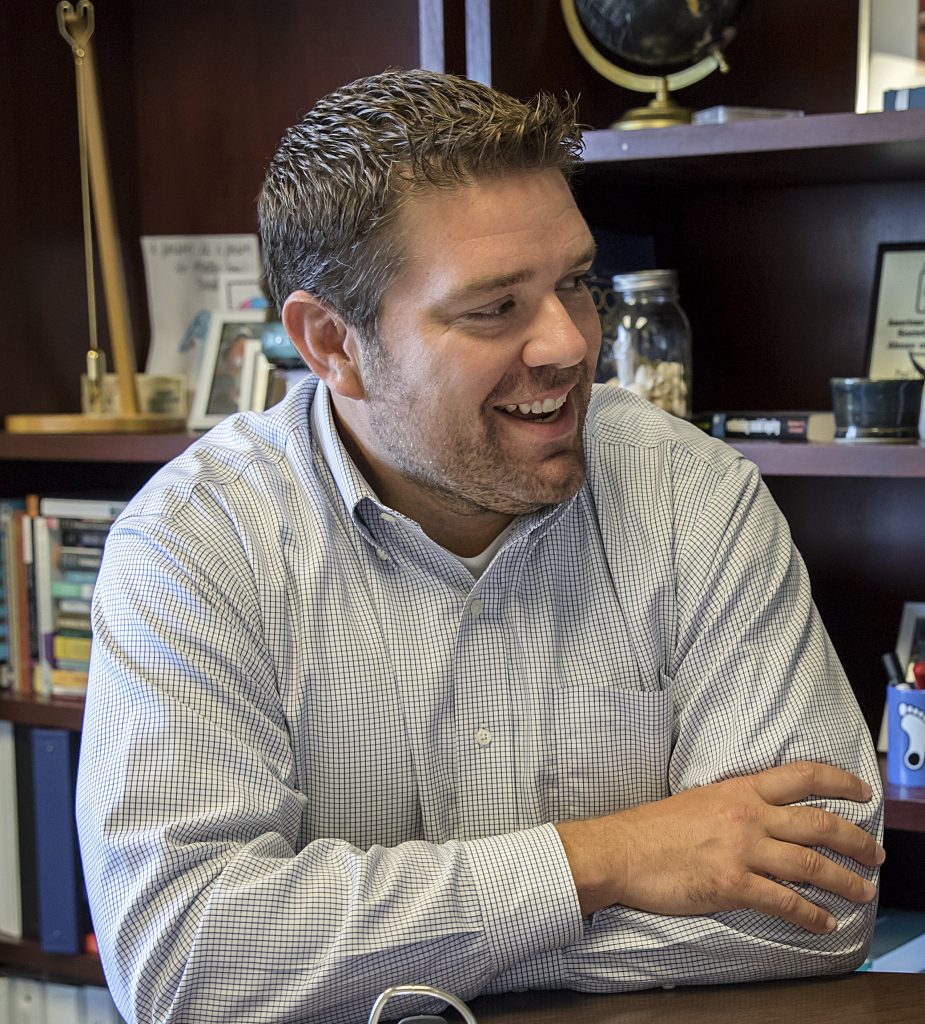 Paul Lanier, PhD, MSW is an Assistant Professor at the University of North Carolina at Chapel Hill School of Social Work, where he teaches courses in social policy and program evaluation. Dr. Lanier received his doctoral degree from the Brown School at Washington University in St. Louis. His research focuses on developing, evaluating, and implementing evidence-based prevention programs in child welfare, mental health, and early childhood systems. His research has included the implementation of family support models including Parent-Child Interaction Therapy, Triple P Parenting Program, Circle of Parents, and several early home visiting models. He is currently leading a statewide landscape analysis of early home visiting systems in North Carolina. His recent work has involved engaging and supporting low-income families with young children, particularly new fathers.
Paul Lanier, PhD, MSW is an Assistant Professor at the University of North Carolina at Chapel Hill School of Social Work, where he teaches courses in social policy and program evaluation. Dr. Lanier received his doctoral degree from the Brown School at Washington University in St. Louis. His research focuses on developing, evaluating, and implementing evidence-based prevention programs in child welfare, mental health, and early childhood systems. His research has included the implementation of family support models including Parent-Child Interaction Therapy, Triple P Parenting Program, Circle of Parents, and several early home visiting models. He is currently leading a statewide landscape analysis of early home visiting systems in North Carolina. His recent work has involved engaging and supporting low-income families with young children, particularly new fathers.
 Laura Louison, MSW, MSPH is the Associate Director of Resource & Capacity Development and an Advanced Implementation Specialist with the National Implementation Research Network (NIRN) at the Frank Porter Graham Child Development Institute at UNC Chapel Hill. In her current role, she works with state and local agencies to support the use of implementation science in their health and human services programs. Laura’s work focuses on building implementation capacity in complex and multi-sector systems, with a particular interest in rural and frontier communities.
Laura Louison, MSW, MSPH is the Associate Director of Resource & Capacity Development and an Advanced Implementation Specialist with the National Implementation Research Network (NIRN) at the Frank Porter Graham Child Development Institute at UNC Chapel Hill. In her current role, she works with state and local agencies to support the use of implementation science in their health and human services programs. Laura’s work focuses on building implementation capacity in complex and multi-sector systems, with a particular interest in rural and frontier communities.
Laura previously served as director of the North Carolina Maternal, Infant, and Early Childhood Home Visiting Program at the North Carolina Division of Public Health. There, she was responsible for the implementation of the federal MIECHV program and statewide implementation of Nurse Family Partnership in collaboration with public and private stakeholders. Laura is a public health social worker with over fifteen years of experience in implementation of maternal and child health programs and quality improvement with public and non-profit agencies.
 David Ansong, PhD, MSW is an Assistant Professor at the University of North Carolina at Chapel Hill School of Social Work. He is a faculty fellow of the Global Social Development Innovations and serves as a faculty director with the Global Asset Building program at the Center for Social Development at Washington University in St. Louis. Ansong’s research interests include identifying interventions to address economic and educational disparities among low-income youth and families in resource-limited countries. Ansong has been involved with intervention research on asset development for low-income households and young people including the YouthSave Ghana Experiment, which examined the viability and impacts of youth savings accounts for low-income youth in Ghana. He examined the psychological and educational impacts of education funding mechanisms such as matched savings accounts and scholarships, for low-income rural youth.
David Ansong, PhD, MSW is an Assistant Professor at the University of North Carolina at Chapel Hill School of Social Work. He is a faculty fellow of the Global Social Development Innovations and serves as a faculty director with the Global Asset Building program at the Center for Social Development at Washington University in St. Louis. Ansong’s research interests include identifying interventions to address economic and educational disparities among low-income youth and families in resource-limited countries. Ansong has been involved with intervention research on asset development for low-income households and young people including the YouthSave Ghana Experiment, which examined the viability and impacts of youth savings accounts for low-income youth in Ghana. He examined the psychological and educational impacts of education funding mechanisms such as matched savings accounts and scholarships, for low-income rural youth.
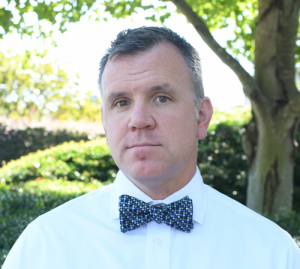 Oscar Fleming, DrPH, MSPH is an Implementation Scientist based at the National Implementation Research Network at the University of North Carolina at Chapel Hill. With the National Center for Early Childhood Development Teaching and Learning, Oscar works closely with Head Start professionals to enhance implementation capacity in service to improved programs that lead to positive outcomes for children, families and communities. Mr. Fleming is also the Lead for the Evidence-based Decision-Making Core for the National MCH Workforce Development Center. Over the last 25 years, he has worked on public health, early childhood and community development programs in North Carolina, across the US and in lower and middle-income countries around the world. His areas of interest include program design, implementation science, coaching, and team development in support of evidence based and other innovative programs. Mr. Fleming is an Adjunct Assistant Professor in Public Health Leadership Program at the Gillings School of Global Public Health. Currently working to complete a Doctorate in Health Leadership, Mr. Fleming has a Master of Science of Public Health and Bachelor of Arts in International Studies degrees from the University of North Carolina at Chapel Hill.
Oscar Fleming, DrPH, MSPH is an Implementation Scientist based at the National Implementation Research Network at the University of North Carolina at Chapel Hill. With the National Center for Early Childhood Development Teaching and Learning, Oscar works closely with Head Start professionals to enhance implementation capacity in service to improved programs that lead to positive outcomes for children, families and communities. Mr. Fleming is also the Lead for the Evidence-based Decision-Making Core for the National MCH Workforce Development Center. Over the last 25 years, he has worked on public health, early childhood and community development programs in North Carolina, across the US and in lower and middle-income countries around the world. His areas of interest include program design, implementation science, coaching, and team development in support of evidence based and other innovative programs. Mr. Fleming is an Adjunct Assistant Professor in Public Health Leadership Program at the Gillings School of Global Public Health. Currently working to complete a Doctorate in Health Leadership, Mr. Fleming has a Master of Science of Public Health and Bachelor of Arts in International Studies degrees from the University of North Carolina at Chapel Hill.
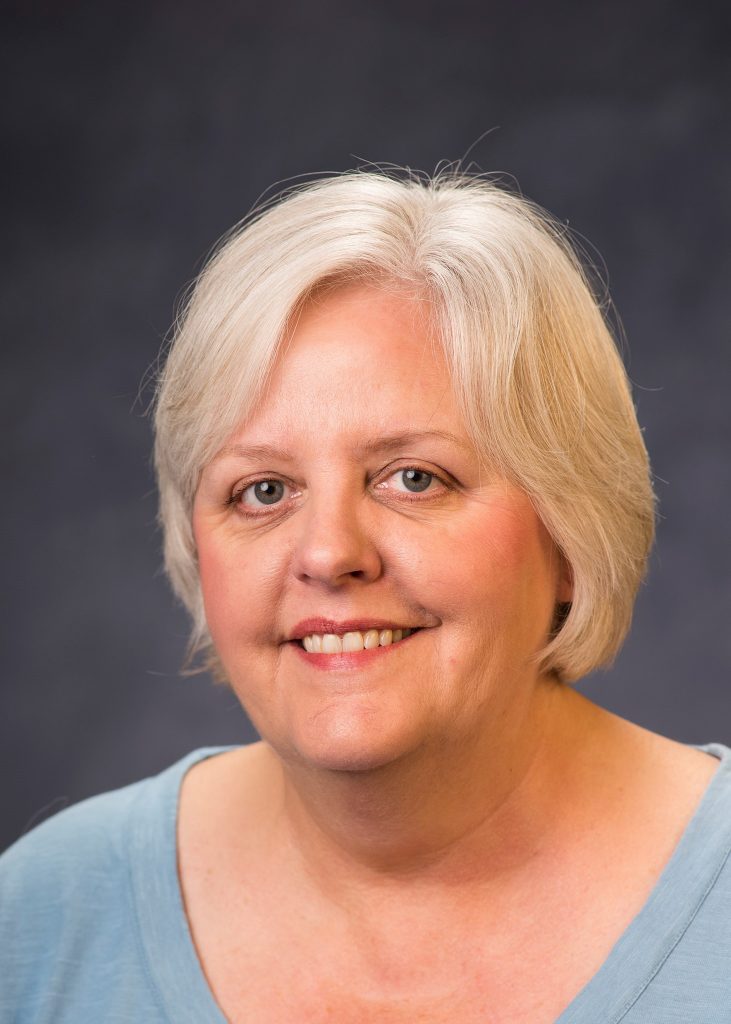 Marilyn Ghezzi, MSW, LCSW is a Clinical Assistant Professor at the UNC-Chapel Hill School of Social Work. Marilyn teaches advanced clinical practice courses, including a course on Social Work with Groups. Prior to joining the full time faculty in 2008, Marilyn worked as a clinical social worker for over twenty years. She is currently a Co-investigator on a pilot study of Specialty Mental Health Probation in North Carolina. As part of her study responsibilities, Marilyn meets with mental health probation officers in six North Carolina counties to train and consult with them about their probationers. She received her MSW from UNC-Chapel Hill School of Social Work in 1988.
Marilyn Ghezzi, MSW, LCSW is a Clinical Assistant Professor at the UNC-Chapel Hill School of Social Work. Marilyn teaches advanced clinical practice courses, including a course on Social Work with Groups. Prior to joining the full time faculty in 2008, Marilyn worked as a clinical social worker for over twenty years. She is currently a Co-investigator on a pilot study of Specialty Mental Health Probation in North Carolina. As part of her study responsibilities, Marilyn meets with mental health probation officers in six North Carolina counties to train and consult with them about their probationers. She received her MSW from UNC-Chapel Hill School of Social Work in 1988.
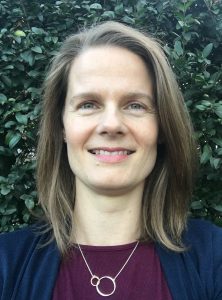 Audrey Loper, MPH, MS has worked in public health for the past fifteen years, with a focus on maternal and child health, implementation of evidence-based programs, data use, and evaluation. She is currently an Implementation Specialist with the National Implementation Research Network (NIRN) at the Frank Porter Graham Child Development Institute at the University of North Carolina at Chapel Hill, where she provides technical assistance on implementation science best practices. Audrey previously served as the Evaluation Consultant for the North Carolina Division of Public Health’s Teen Pregnancy Prevention Initiatives and has worked as a childbirth educator and volunteer doula. She received her Master of Public Health from UNC Chapel Hill, and her Master of Science from the University of California, Davis.
Audrey Loper, MPH, MS has worked in public health for the past fifteen years, with a focus on maternal and child health, implementation of evidence-based programs, data use, and evaluation. She is currently an Implementation Specialist with the National Implementation Research Network (NIRN) at the Frank Porter Graham Child Development Institute at the University of North Carolina at Chapel Hill, where she provides technical assistance on implementation science best practices. Audrey previously served as the Evaluation Consultant for the North Carolina Division of Public Health’s Teen Pregnancy Prevention Initiatives and has worked as a childbirth educator and volunteer doula. She received her Master of Public Health from UNC Chapel Hill, and her Master of Science from the University of California, Davis.
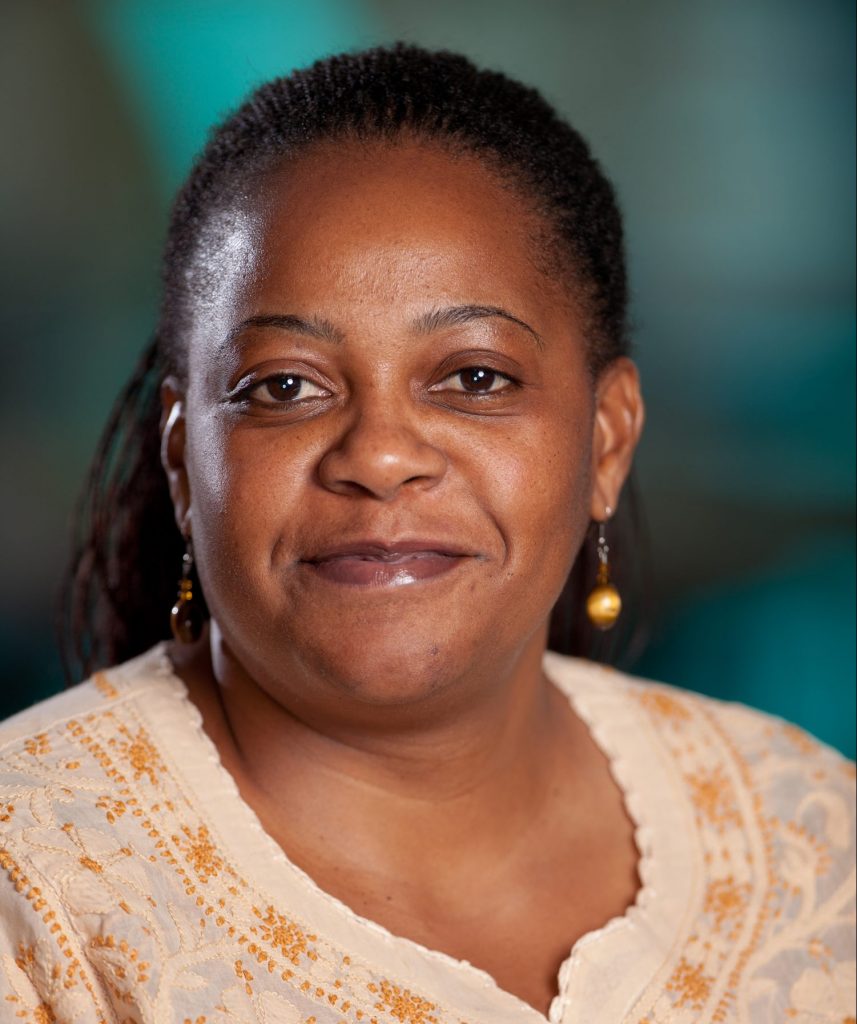 Gina Chowa, PhD, MSW is an Associate Professor and Director of Global Social Development Innovations at the University of North Carolina at Chapel Hill School of Social Work. Dr. Chowa conducts research on global social development, particularly the intersection of economic security, workforce development, social protection and financial inclusion and its impact on the well-being of vulnerable and marginalized populations in the Global South. She develops and evaluates interventions that aim to promote gainful employment, meaningful financial inclusion, long-term economic security, and improved health and education outcomes. Her research focuses on employing rigorous methodology to examine causal relationships between holistic economic security interventions and well-being of children, youth, and their families in low-resource communities. Chowa’s research is informed by more than two decades of global development practice and has informed her teaching in the areas of development theory and practice in global settings, community-based participatory methods, project design and proposal writing, and evidence-based practice in the Global South. Her current work focuses on nationwide, large-scale experimental demonstrations of economic security interventions and pioneering pilot programs to improve the welfare of marginalized populations including low-income youth, people living with HIV/AIDS, women, poor rural households, and urban slum dwellers. Her work has been funded by the MasterCard Foundation, the Ford Foundation, Chronic Poverty Research Centre, University of North Carolina (UNC), National Institutes of Health and UNC Center for AIDS Research, and UNC School of Social Work.
Gina Chowa, PhD, MSW is an Associate Professor and Director of Global Social Development Innovations at the University of North Carolina at Chapel Hill School of Social Work. Dr. Chowa conducts research on global social development, particularly the intersection of economic security, workforce development, social protection and financial inclusion and its impact on the well-being of vulnerable and marginalized populations in the Global South. She develops and evaluates interventions that aim to promote gainful employment, meaningful financial inclusion, long-term economic security, and improved health and education outcomes. Her research focuses on employing rigorous methodology to examine causal relationships between holistic economic security interventions and well-being of children, youth, and their families in low-resource communities. Chowa’s research is informed by more than two decades of global development practice and has informed her teaching in the areas of development theory and practice in global settings, community-based participatory methods, project design and proposal writing, and evidence-based practice in the Global South. Her current work focuses on nationwide, large-scale experimental demonstrations of economic security interventions and pioneering pilot programs to improve the welfare of marginalized populations including low-income youth, people living with HIV/AIDS, women, poor rural households, and urban slum dwellers. Her work has been funded by the MasterCard Foundation, the Ford Foundation, Chronic Poverty Research Centre, University of North Carolina (UNC), National Institutes of Health and UNC Center for AIDS Research, and UNC School of Social Work.
 Caryn Ward, PhD, HSP-P is the Associate Director for Education and Measurement of the National Implementation Research Network (NIRN) at the Frank Porter Graham Child Development Institute at UNC-Chapel Hill. At NIRN, she is the Director of the State Implementation and Scaling up of Evidence Based Practices (SISEP) Center funded by US Department of Education’s Office of Special Education Programs. Dr. Ward has extensive experience in leading and developing infrastructure and capacity development with state and local education agencies as well as early childhood programs nationally. Within NIRN, Dr. Ward leads the development of implementation capacity measures and fidelity measures for use within education as well as other disciplines. Dr. Ward has served in a leadership role for the National Center for School Turnaround and currently serves on the advisory board of the National School Climate Center and research council for Communities in Schools – NC.
Caryn Ward, PhD, HSP-P is the Associate Director for Education and Measurement of the National Implementation Research Network (NIRN) at the Frank Porter Graham Child Development Institute at UNC-Chapel Hill. At NIRN, she is the Director of the State Implementation and Scaling up of Evidence Based Practices (SISEP) Center funded by US Department of Education’s Office of Special Education Programs. Dr. Ward has extensive experience in leading and developing infrastructure and capacity development with state and local education agencies as well as early childhood programs nationally. Within NIRN, Dr. Ward leads the development of implementation capacity measures and fidelity measures for use within education as well as other disciplines. Dr. Ward has served in a leadership role for the National Center for School Turnaround and currently serves on the advisory board of the National School Climate Center and research council for Communities in Schools – NC.
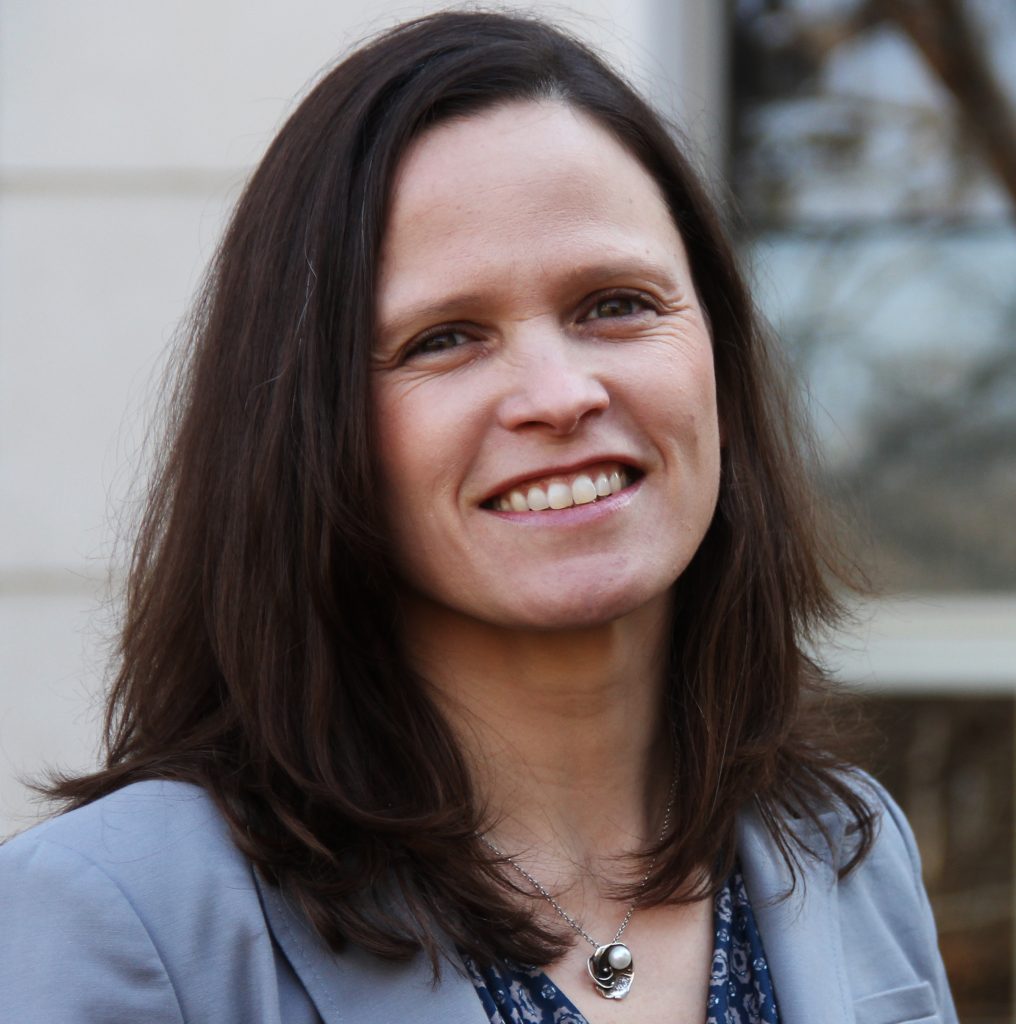 Tonya B. Van Deinse, PhD, MSW is a Clinical Assistant Professor at the UNC Chapel Hill School of Social Work and the Co-Director of Specialty Mental Health Probation Caseloads in NC. Dr. Van Deinse’s background is in management and community practice within mental health service systems with a focus on populations that span multiple systems, such as adults with serious mental illnesses who cycle in and out of crisis services and the criminal justice system. Dr. Van Deinse’s current research and practice focus on intervention implementation – particularly at the interface of the criminal justice and mental health systems – and using stakeholder engagement and case consultation to develop strategies to enhance intervention uptake.
Tonya B. Van Deinse, PhD, MSW is a Clinical Assistant Professor at the UNC Chapel Hill School of Social Work and the Co-Director of Specialty Mental Health Probation Caseloads in NC. Dr. Van Deinse’s background is in management and community practice within mental health service systems with a focus on populations that span multiple systems, such as adults with serious mental illnesses who cycle in and out of crisis services and the criminal justice system. Dr. Van Deinse’s current research and practice focus on intervention implementation – particularly at the interface of the criminal justice and mental health systems – and using stakeholder engagement and case consultation to develop strategies to enhance intervention uptake.
 Allison Metz, PhD is a developmental psychologist, Director of the National Implementation Research Network (NIRN), Senior Research Scientist at the Frank Porter Graham Child Development Institute, and Research Professor at the School of Social Work at The University of North Carolina-Chapel Hill. Allison specializes in the implementation, mainstreaming, and scaling of evidence to achieve social impact for children and families in a range of human service and education areas, with an emphasis on child welfare and early childhood service contexts. Allison’s work focuses in several key areas including: the development of evidence-informed practice models; the co-production of effective implementation and scaling strategies to improve the application of evidence in service delivery systems; and the development of skills and competencies for implementation practitioners.
Allison Metz, PhD is a developmental psychologist, Director of the National Implementation Research Network (NIRN), Senior Research Scientist at the Frank Porter Graham Child Development Institute, and Research Professor at the School of Social Work at The University of North Carolina-Chapel Hill. Allison specializes in the implementation, mainstreaming, and scaling of evidence to achieve social impact for children and families in a range of human service and education areas, with an emphasis on child welfare and early childhood service contexts. Allison’s work focuses in several key areas including: the development of evidence-informed practice models; the co-production of effective implementation and scaling strategies to improve the application of evidence in service delivery systems; and the development of skills and competencies for implementation practitioners.
Allison serves on several national advisory boards and is an invited speaker and trainer internationally. She is a co-chair of the Summer Institute on Implementation Science at UNC-Chapel Hill. Allison is the author of many peer reviewed articles, briefs and white papers. She is co-editor of the widely read volume Applying Implementation Science in Early Childhood Program and Systems.
 Sarah Verbiest, DrPH, MSW, MPH is a public health social worker, Director of the Jordan Institute for Families in the School of Social Work and Executive Director of the Center for Maternal and Infant Health in the School of Medicine at the University of North Carolina-Chapel Hill. With over 25 years-experience in the field of maternal and infant health Sarah has led many initiatives to improve maternal and infant health outcomes, with a particular focus on health equity. She is a principal investigator on two research projects focusing on postpartum health and wellness. She leads several statewide infant mortality prevention campaigns and is the principal investigator for a new cooperative agreement with the federal government focusing on integrating preconception care into the well woman visit. She has held a governor-appointed seat on the North Carolina Child Fatality Task Force for over a decade. In her work with the Jordan Institute she partners with faculty working on a diverse slate of initiatives from child welfare to children with special health care needs, social innovation and the redesign of guardianship for seniors. She recently published her first book – Moving Life Course Theory into Action – Making Change Happen with APHA Press. She took on the role of Co-Chair of the Summer Institute out of her passion for building collaboration, bolstering the social work profession and accelerating progress towards improving the health of families.
Sarah Verbiest, DrPH, MSW, MPH is a public health social worker, Director of the Jordan Institute for Families in the School of Social Work and Executive Director of the Center for Maternal and Infant Health in the School of Medicine at the University of North Carolina-Chapel Hill. With over 25 years-experience in the field of maternal and infant health Sarah has led many initiatives to improve maternal and infant health outcomes, with a particular focus on health equity. She is a principal investigator on two research projects focusing on postpartum health and wellness. She leads several statewide infant mortality prevention campaigns and is the principal investigator for a new cooperative agreement with the federal government focusing on integrating preconception care into the well woman visit. She has held a governor-appointed seat on the North Carolina Child Fatality Task Force for over a decade. In her work with the Jordan Institute she partners with faculty working on a diverse slate of initiatives from child welfare to children with special health care needs, social innovation and the redesign of guardianship for seniors. She recently published her first book – Moving Life Course Theory into Action – Making Change Happen with APHA Press. She took on the role of Co-Chair of the Summer Institute out of her passion for building collaboration, bolstering the social work profession and accelerating progress towards improving the health of families.
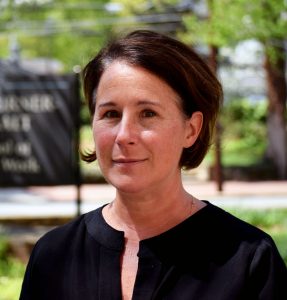 Kirsten Kainz, PhD is a research professor and assistant director of research development and translation in the School of Social Work at UNC-Chapel Hill. Her research and teaching focus on methods for investigating change and impact, particularly in the area of education equity and improvement. She actively facilitates school district improvement through her role as partnership consultant with the Strategic Education Research Partnership in Washington, DC and through her previous service as an elected school board member and engaged citizen.
Kirsten Kainz, PhD is a research professor and assistant director of research development and translation in the School of Social Work at UNC-Chapel Hill. Her research and teaching focus on methods for investigating change and impact, particularly in the area of education equity and improvement. She actively facilitates school district improvement through her role as partnership consultant with the Strategic Education Research Partnership in Washington, DC and through her previous service as an elected school board member and engaged citizen.
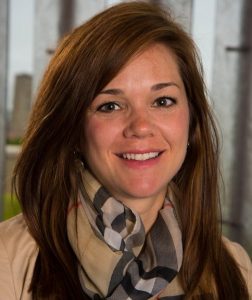 Leah Bartley, PhD, MSW is an Implementation Specialist with the National Implementation Research Network (NIRN) at the Frank Porter Graham Child Development Institute at the University of North Carolina at Chapel Hill. In her current role, she is supporting implementation science application in child welfare and early childhood initiatives. She also was a 2014-2016 Doris Duke Fellow for the Promotion of Child Wellbeing through the University of Chicago Chapin Hall. Previously, Dr. Bartley was a program manager for the Ruth Young Center for Children and Families where she provided technical assistance, data analysis, and implementation support to the replication of Family Connections, a child maltreatment prevention program. Furthermore, from 2008-2010, she was The Duke Endowment Fellow, following several years as a direct service social worker. Her most recent publications include a review of variables that have impacted fidelity of child maltreatment prevention related interventions and co-authorship on co-creative conditions for sustaining research evidence in public child welfare.
Leah Bartley, PhD, MSW is an Implementation Specialist with the National Implementation Research Network (NIRN) at the Frank Porter Graham Child Development Institute at the University of North Carolina at Chapel Hill. In her current role, she is supporting implementation science application in child welfare and early childhood initiatives. She also was a 2014-2016 Doris Duke Fellow for the Promotion of Child Wellbeing through the University of Chicago Chapin Hall. Previously, Dr. Bartley was a program manager for the Ruth Young Center for Children and Families where she provided technical assistance, data analysis, and implementation support to the replication of Family Connections, a child maltreatment prevention program. Furthermore, from 2008-2010, she was The Duke Endowment Fellow, following several years as a direct service social worker. Her most recent publications include a review of variables that have impacted fidelity of child maltreatment prevention related interventions and co-authorship on co-creative conditions for sustaining research evidence in public child welfare.
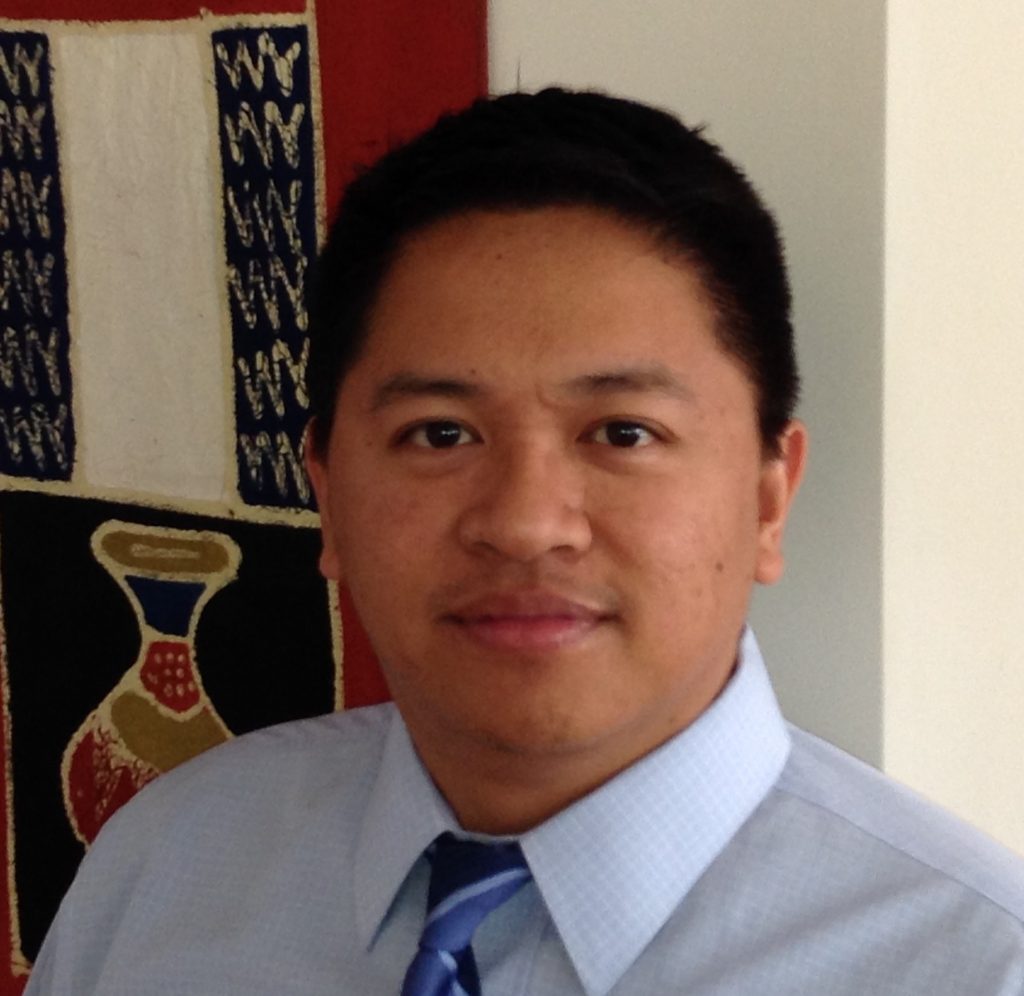 Rainier Masa, PhD, MSW is an Assistant Professor at the University of North Carolina at Chapel Hill School of Social Work. Masa’s research interests focus on the economic and social aspects of health in low-resource communities. He conducts research on the intersection of economic security and health, including HIV prevention and treatment behaviors. As the lead researcher for health and social protection cores at Global Social Development Innovations, Masa develops and evaluates integrated health and economic strengthening interventions that aim to tackle underlying social and economic determinants of poor and adverse health outcomes in low-resource settings. His research combines formative evaluation, to increase understanding of the interaction of economic insecurity and poor health, and experimental and quasi-experimental methods, to identify and alter modifiable causal mechanisms that shape health behavior changes among individuals in resource-limited settings.
Rainier Masa, PhD, MSW is an Assistant Professor at the University of North Carolina at Chapel Hill School of Social Work. Masa’s research interests focus on the economic and social aspects of health in low-resource communities. He conducts research on the intersection of economic security and health, including HIV prevention and treatment behaviors. As the lead researcher for health and social protection cores at Global Social Development Innovations, Masa develops and evaluates integrated health and economic strengthening interventions that aim to tackle underlying social and economic determinants of poor and adverse health outcomes in low-resource settings. His research combines formative evaluation, to increase understanding of the interaction of economic insecurity and poor health, and experimental and quasi-experimental methods, to identify and alter modifiable causal mechanisms that shape health behavior changes among individuals in resource-limited settings.
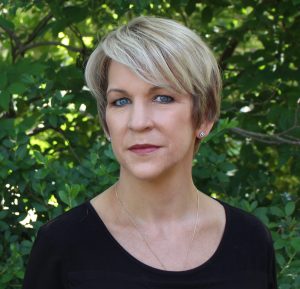 Dale Lynn Cusumano, PhD brings to the institute her expertise working at the early childhood, school, district, university, and state levels as a researcher, nationally certified school psychologist, program coordinator, and evaluator. Within her current position at the National Implementation Research Network (NIRN), she provides technical assistance to state departments of education focused on building the knowledge and skills that facilitate development of evidence-based infrastructures in service of delivering full and effective use of evidence-based instruction practices to students. Dale also has served as the Project Director for the IES funded Team-Initiated Problem Solving (TIPS) grant. She also has served as a Project Evaluator of a federally-funded Early Learning Opportunities grant, which examined the effect of coaching to facilitate implementation of an early literacy. At the district level, Dale has assisted in designing and delivering professional development modules that refined implementation of RtI at the school level. Dale’s research and evaluation efforts have been published in numerous journals one of which was selected as an honorable mention for outstanding article that contributed to the field of early childhood education. Virtual training and on-line resource development has been a critical part of Dale’s recent work including on-line course development at the university and the development and design of materials housed on the website dedicated to TIPS (www.TIPS2info.blogspot.com).
Dale Lynn Cusumano, PhD brings to the institute her expertise working at the early childhood, school, district, university, and state levels as a researcher, nationally certified school psychologist, program coordinator, and evaluator. Within her current position at the National Implementation Research Network (NIRN), she provides technical assistance to state departments of education focused on building the knowledge and skills that facilitate development of evidence-based infrastructures in service of delivering full and effective use of evidence-based instruction practices to students. Dale also has served as the Project Director for the IES funded Team-Initiated Problem Solving (TIPS) grant. She also has served as a Project Evaluator of a federally-funded Early Learning Opportunities grant, which examined the effect of coaching to facilitate implementation of an early literacy. At the district level, Dale has assisted in designing and delivering professional development modules that refined implementation of RtI at the school level. Dale’s research and evaluation efforts have been published in numerous journals one of which was selected as an honorable mention for outstanding article that contributed to the field of early childhood education. Virtual training and on-line resource development has been a critical part of Dale’s recent work including on-line course development at the university and the development and design of materials housed on the website dedicated to TIPS (www.TIPS2info.blogspot.com).
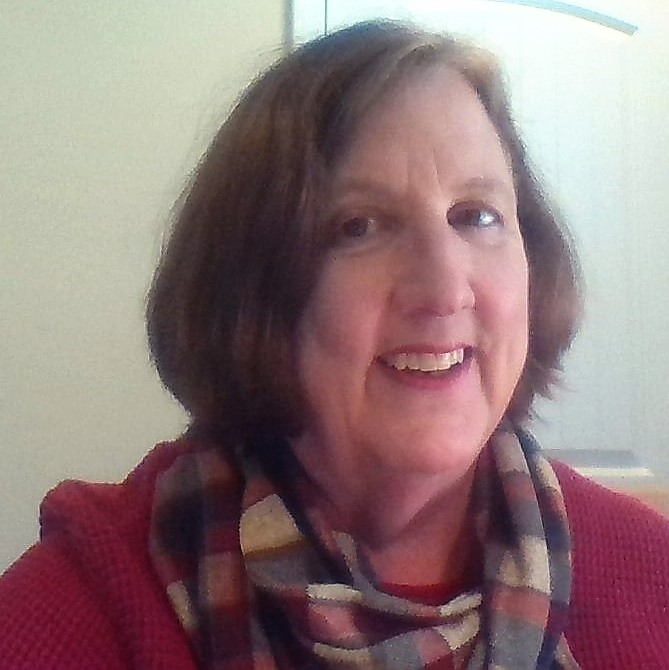 Virginia C. Strand, DSW is an adjunct faculty member in the School of Social Work at the University of North Carolina at Chapel Hill, and formerly a professor at the Fordham University Graduate School of Social Service. She has over 35 years of experience in social work practice, research, education and training, with a recent focus on assisting community-based agencies implement evidence-based trauma treatment. Dr. Strand has authored over 30 journal articles and is co-editor of a recent text on Trauma Responsive Child Welfare Systems.
Virginia C. Strand, DSW is an adjunct faculty member in the School of Social Work at the University of North Carolina at Chapel Hill, and formerly a professor at the Fordham University Graduate School of Social Service. She has over 35 years of experience in social work practice, research, education and training, with a recent focus on assisting community-based agencies implement evidence-based trauma treatment. Dr. Strand has authored over 30 journal articles and is co-editor of a recent text on Trauma Responsive Child Welfare Systems.
 Carrie Martin Blanchard, PharmD, MPH is a research assistant professor in the Center for Medication Optimization through Practice and Policy (CMOPP) at the UNC Eshelman School of Pharmacy. She leads the educational and research development for the center, and her research focuses how to implement and scale effective pharmacy services in the ambulatory care and community setting through the use of implementation science frameworks, the selection of effective implementation strategies, and the measurement of implementation outcomes of interest. Prior to her current position, she was the inaugural postdoctoral research fellow in Implementation Science at the UNC Eshelman School of Pharmacy in partnership with the National Implementation Research Network. She completed her Masters of Public Health in the Department of Health Policy and Management at UNC Gillings School of Global Public Health. Carrie is a registered pharmacist in North Carolina and graduated with her PharmD from the UNC Eshelman School of Pharmacy. Prior to pharmacy school, she conducted research at the National Institute of Allergy and Infectious Diseases. She holds a Bachelors in Chemistry from Wake Forest University.
Carrie Martin Blanchard, PharmD, MPH is a research assistant professor in the Center for Medication Optimization through Practice and Policy (CMOPP) at the UNC Eshelman School of Pharmacy. She leads the educational and research development for the center, and her research focuses how to implement and scale effective pharmacy services in the ambulatory care and community setting through the use of implementation science frameworks, the selection of effective implementation strategies, and the measurement of implementation outcomes of interest. Prior to her current position, she was the inaugural postdoctoral research fellow in Implementation Science at the UNC Eshelman School of Pharmacy in partnership with the National Implementation Research Network. She completed her Masters of Public Health in the Department of Health Policy and Management at UNC Gillings School of Global Public Health. Carrie is a registered pharmacist in North Carolina and graduated with her PharmD from the UNC Eshelman School of Pharmacy. Prior to pharmacy school, she conducted research at the National Institute of Allergy and Infectious Diseases. She holds a Bachelors in Chemistry from Wake Forest University.
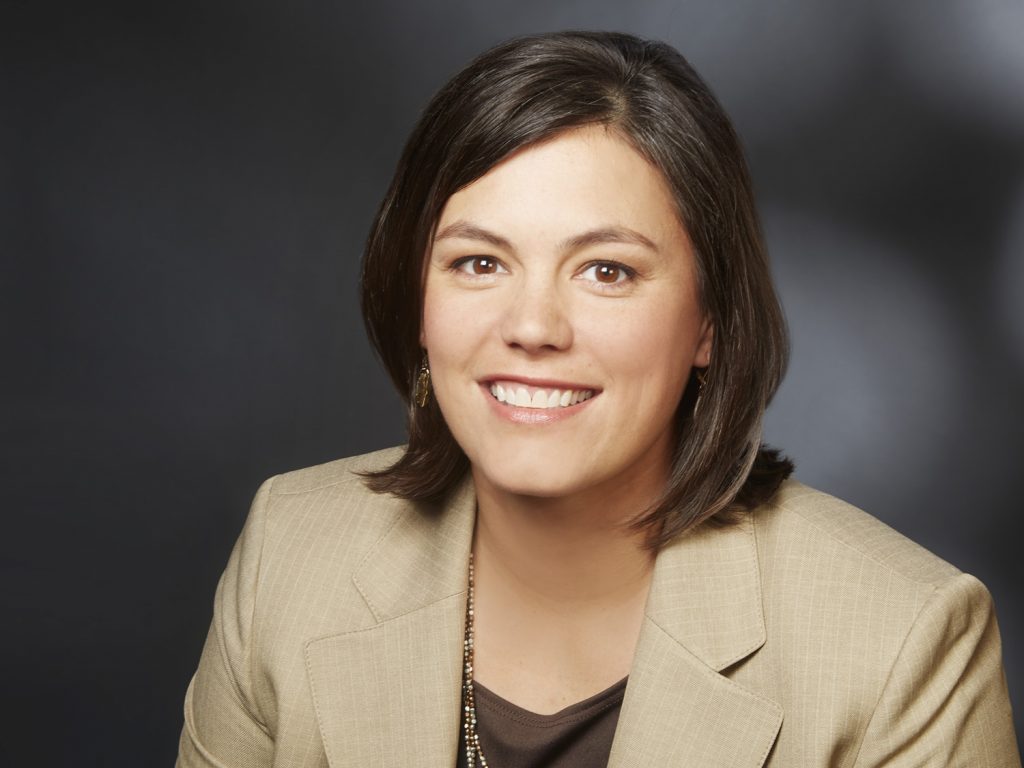 Jennifer Schroeder, PhD is a clinical child psychologist with over 15 years of experience consulting to nonprofit, education, government, and philanthropic organizations to improve and sustain effective programs and services for children, youth, and families. She is the founder and president of The Implementation Group, a strategic planning and evaluation firm that supports effective implementation practices in human services and education. She holds a doctorate in clinical child psychology from Bowling Green State University and completed pre- and post-doctoral fellowships at Yale University.
Jennifer Schroeder, PhD is a clinical child psychologist with over 15 years of experience consulting to nonprofit, education, government, and philanthropic organizations to improve and sustain effective programs and services for children, youth, and families. She is the founder and president of The Implementation Group, a strategic planning and evaluation firm that supports effective implementation practices in human services and education. She holds a doctorate in clinical child psychology from Bowling Green State University and completed pre- and post-doctoral fellowships at Yale University.
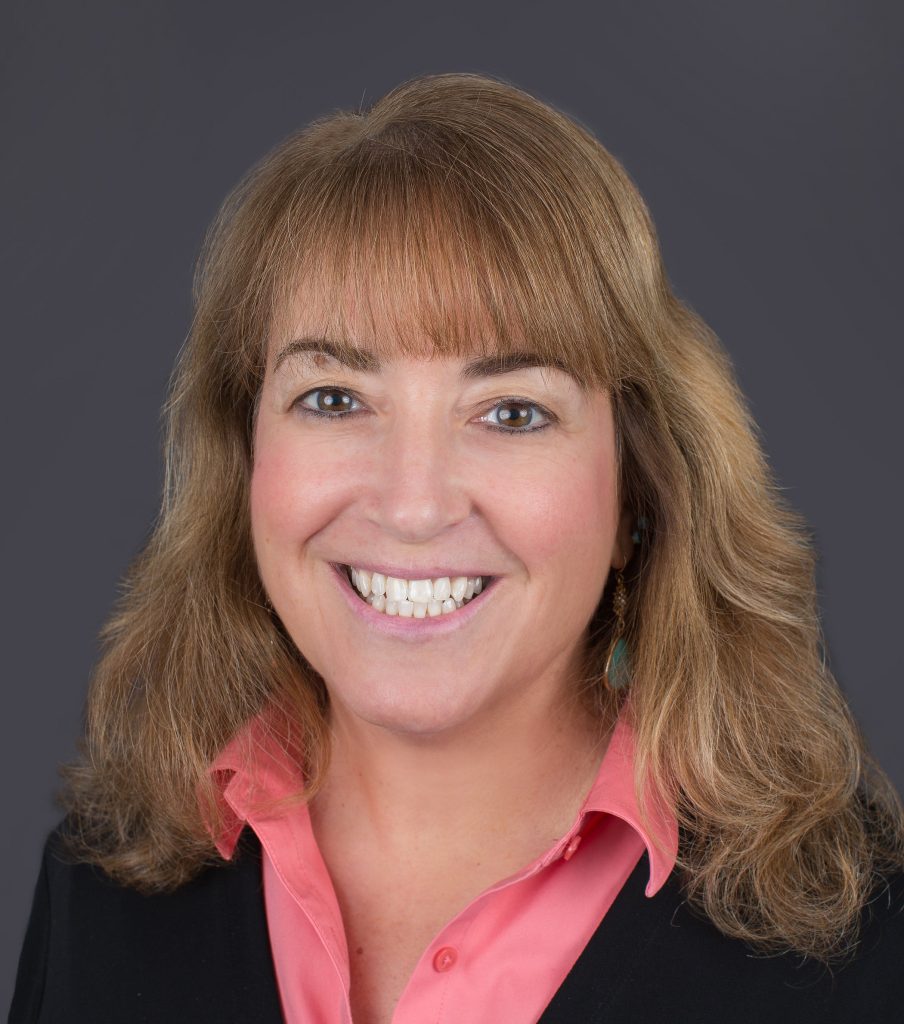 Dorothy Cilenti, DrPH, MSW, MPH has worked in local and state public health agencies in North Carolina for more than 20 years. She is primarily interested in improving systems of care for underserved women and children. Dr. Cilenti is a clinical associate professor in the Department of Maternal and Child Health at the UNC Gillings School of Global Public Health where she directs the National Maternal and Child Health (MCH) Workforce Development Center, a cooperative agreement with the Health Resources Services Administration, Maternal and Child Health Bureau, Division of MCH Workforce Development. She has served as principle investigator for more than 25 contracts and grants totaling more than 15 million, ranging from training grants to public health systems research awards. Dr. Cilenti received a Bachelors’ degree in Psychology from Duke University and a Masters in both Public Health and Social Work as well as a Doctorate degree in Health Policy and Management from the University of North Carolina at Chapel Hill.
Dorothy Cilenti, DrPH, MSW, MPH has worked in local and state public health agencies in North Carolina for more than 20 years. She is primarily interested in improving systems of care for underserved women and children. Dr. Cilenti is a clinical associate professor in the Department of Maternal and Child Health at the UNC Gillings School of Global Public Health where she directs the National Maternal and Child Health (MCH) Workforce Development Center, a cooperative agreement with the Health Resources Services Administration, Maternal and Child Health Bureau, Division of MCH Workforce Development. She has served as principle investigator for more than 25 contracts and grants totaling more than 15 million, ranging from training grants to public health systems research awards. Dr. Cilenti received a Bachelors’ degree in Psychology from Duke University and a Masters in both Public Health and Social Work as well as a Doctorate degree in Health Policy and Management from the University of North Carolina at Chapel Hill.
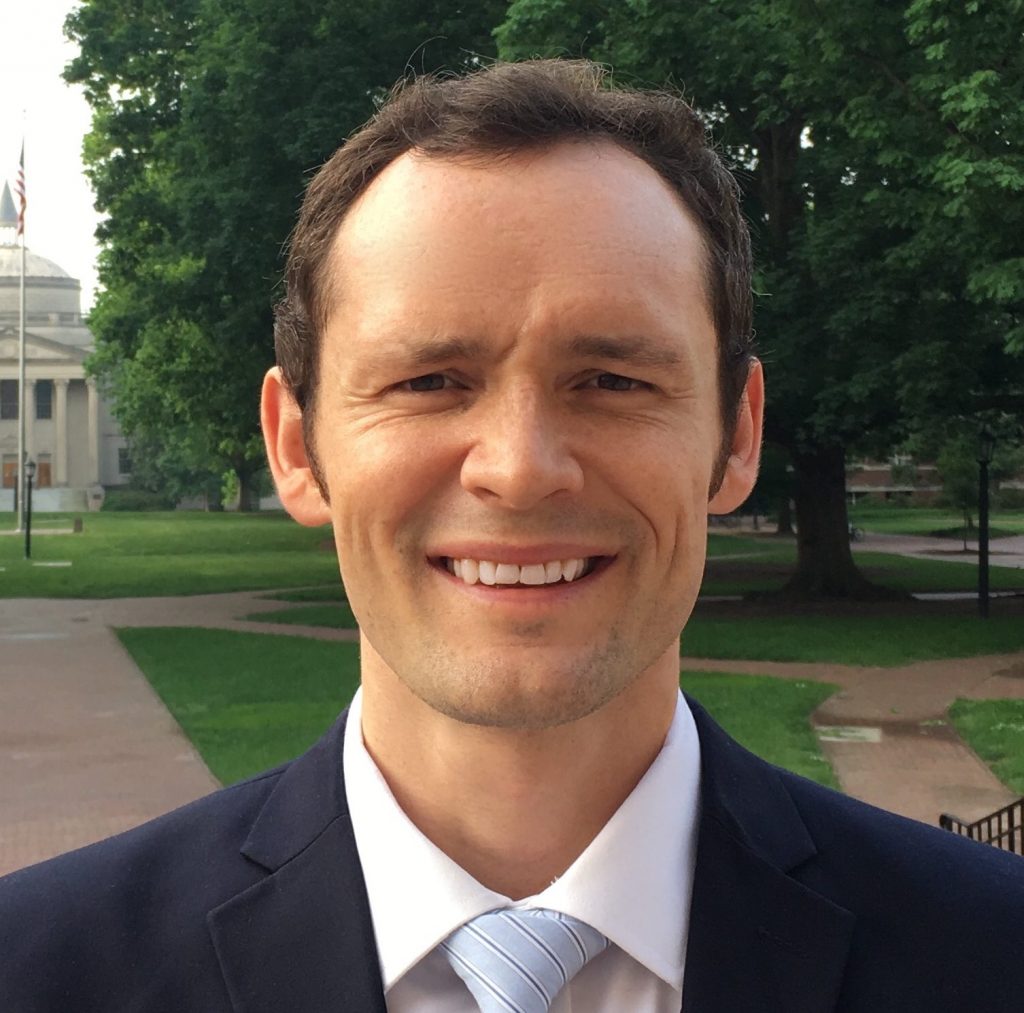 Todd Jensen, PhD, MSW is a Research Associate in the Jordan Institute for Families and Research Assistant Professor in the School of Social Work at the University of North Carolina at Chapel Hill. His areas of interest are centered on family resilience and youth well-being. He has served as chief analyst on national projects with the United States Air Force aimed at supporting and informing efforts to prevent family maltreatment among active-duty members. This work has included presenting data to stakeholders in user-friendly ways and identifying and implementing programs and activities that are likely to be sustained over time. He is also involved in extant and emerging community-based projects in Guilford County, North Carolina aimed at alleviating family poverty and promoting child development.
Todd Jensen, PhD, MSW is a Research Associate in the Jordan Institute for Families and Research Assistant Professor in the School of Social Work at the University of North Carolina at Chapel Hill. His areas of interest are centered on family resilience and youth well-being. He has served as chief analyst on national projects with the United States Air Force aimed at supporting and informing efforts to prevent family maltreatment among active-duty members. This work has included presenting data to stakeholders in user-friendly ways and identifying and implementing programs and activities that are likely to be sustained over time. He is also involved in extant and emerging community-based projects in Guilford County, North Carolina aimed at alleviating family poverty and promoting child development.
Summer Institute Agenda (subject to changes/updates)
Summer Institute Day 1: Foundational Knowledge (June, 13, 2018)
- 8:30 – 9:15 – Welcome & Opening Remarks – Why Implementation is Important (Sarah Verbiest, Allison Metz, Bob Blouin, Gary Bowen, & Aysenil Belger; Video)
- 9:15 – 10:45 – Plenary: Defining Implementation Science and Understanding Implementation Science in Practice (Byron Powell & Allison Metz)
- 11:00 – 12:00 – Group Breakout: Facilitated Reflection and Discussion
- 12:00 – 1:00 – Lunch
- 1:00 – 1:45 – Plenary: Asessing Need and Context (Laura Louison, Oscar Fleming, & Paul Lanier)
- 2:00 – 3:30 – Group Breakout
- Breakout A: A Deeper Dive on Assessing Contextual Fit (Laura Louison, Allison Metz, Paul Lanier, & Audrey Loper)
- Breakout B: Usability of Program and Practices (Leah Bartley & Tonya Van Deinse)
- Breakout C: Organizational Readiness (Ginny Strand & Jen Schroeder)
- 3:45 – 4:45 – Closing Plenary – Implementation Science: Opportunities for Bridging Practice and Research to Improve Outcomes (Allison Metz)
- 5:00 – 6:30 – Reception & Networking
Summer Institute Day 2: Practice Skills (June 14, 2018)
- 8:30 – 9:15 – Reflections (Sarah Verbeist; Video); Opening Plenary – Case Example: Implementation Opportunities in Public System (Allison Blake)
- 9:30 – 10:15 – Plenary: Engaging Stakeholders in Framing and Solving Problems (Gina Chowa & Rain Masa)
- 10:30 – 12:00 – Group Breakout (Pick 1)
- Breakout A: Brokering Relationships (Brandy Bynum Dawson & Dorothy Cilenti)
- Breakout B: Co-Learning with Communities (Oscar Fleming & David Ansong)
- Breakout C: Group Process and Team Development (Marilyn Ghezzi & Laura Louison)
- 12:00 – 1:00 – Lunch
- 1:00 – 1:45 – Plenary: Using Data for Continuous Improvement and Evaluation (Kirsten Kainz)
- 2:00 – 3:30 – Group Breakout (Pick 1)
- Breakout A: Continuous Improvement Tools (Kirsten Kainz & Dale Cusumano)
- Breakout B: Data Visualization (Audrey Loper & Todd Jensen)
- Breakout C: Building Fidelity Measures (Caryn Ward & Paul Lanier)
- 3:45 – 4:45 – Closing Plenary – How Can Implementation Science Be Used to Promote Equity and Social Justice (Paul Elam); Closing Remarks (Sarah Verbiest & Allison Metz; Video)
Information About Lodging
If you require lodging, here are some nearby hotels to consider for the nights of June 12 and June 13:
- The Carolina Inn
- 211 Pittsboro Street, Chapel Hill, NC 27516
- *This hotel is a 0.2-mile walk away (about 4 min.) from the School of Social Work.
- The Franklin Hotel Chapel Hill
- 311 West Franklin Street, Chapel Hill, NC 27516
- *This hotel is a 0.6-mile walk away (about 13 min.) from the School of Social Work.
- Aloft Chapel Hill
- 1001 South Hamilton Road, Chapel Hill, NC 27517
- *This hotel is a 15-minute bus ride away from the School of Social Work via the Chapel Hill Transit V and S lines (free).
Information About Parking
The most reliable place to park is in the UNC Hospital lot on Manning Drive. The parking fee is $1.50/ hour. The Carolina Inn next door on Pittsboro Street has space-available pay parking for a flat fee of $20/day. There are also numerous “park & ride” locations in Chapel Hill, with bus service to (or near) the School of Social Work.
Visit https://ssw.unc.edu/about/directions for more details.
